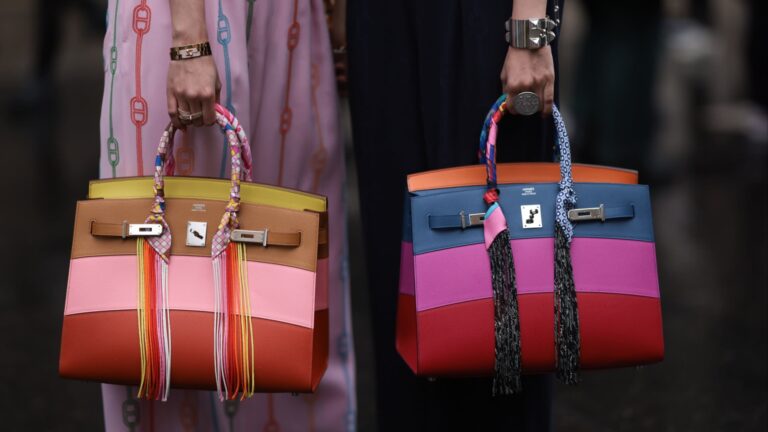Hermès Surpasses LVMH in Luxury Market Capitalization
The luxury goods market has witnessed a significant shift as Hermès has overtaken LVMH in terms of market capitalization. This change comes on the heels of disappointing sales figures for LVMH, the parent company of iconic brands like Louis Vuitton and Dior. As the luxury market continues to evolve, analysts are closely examining the factors contributing to this dynamic rivalry.
Sales Disappointment Leads to Market Volatility
Recent sales reports indicated that LVMH’s performance fell short of expectations, sparking a sell-off in their stock. Investors were keenly watching the luxury goods sector, and the disappointing figures raised questions about the company’s growth trajectory. As a result, Hermès, known for its exclusive leather goods and high-end fashion, capitalized on LVMH’s declining stock performance to secure the top position in market capitalization.
Concerns Over U.S.-China Trade Relations
Analysts had initially expressed concerns over the impact of potential U.S. tariffs on luxury goods, particularly those imported from China. However, it appears that the greater challenge for LVMH lies within its largest market, China. As economic conditions fluctuate, consumer spending habits in China have shifted, prompting a reevaluation of LVMH’s strategy in the region.
Hermès: A Resilient Performer in Luxury
In contrast to LVMH, Hermès has maintained a strong brand reputation and consistent sales performance. The company has capitalized on its exclusivity and heritage, which resonate well with luxury consumers. Hermès’ ability to navigate market challenges effectively has allowed it to emerge as a dominant player in the luxury market.
The Impact of Brand Loyalty and Heritage
Brand loyalty plays a crucial role in the luxury market, and Hermès stands out for its established heritage and exclusivity. Consumers are drawn to the allure of owning a piece of craftsmanship that represents more than just a luxury product; it embodies status and authenticity. This unique value proposition for Hermès has been a deciding factor in its success against larger competitors like LVMH.
Future Outlook for the Luxury Sector
As Hermès claims its position at the top, the future of the luxury sector remains uncertain. Analysts predict that the ongoing economic fluctuations and changing consumer behaviors will continue to shape the market landscape. Brands must adapt to these changes to sustain their competitive edge. LVMH, with its expansive portfolio, will need to reassess its market strategies, particularly in pivotal locations such as China.
Conclusion: A New Era in Luxury Market Dynamics
The recent developments in the luxury goods market signal a potential shift in dynamics, with Hermès overtaking LVMH in market capitalization. As brands navigate the challenges of global economics and evolving consumer preferences, the race for dominance in luxury will only intensify. The outcome of this competition will shape the future of luxury retail and redefine what it means to be a leader in the industry.
